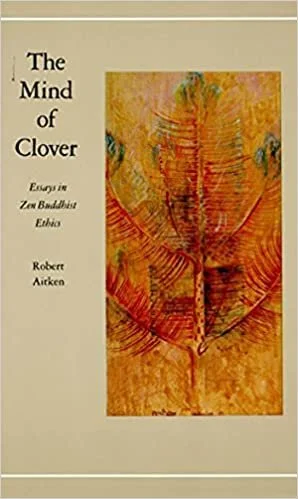
Resources
Other Diamond Sangha Groups
United States
West
Hilo Zen Circle: Hilo, HI
Maui Zendo: Kula, HI
Three Treasures Sangha: Seattle, WA
Mountain Lamp: Demming, WA
Zen Center of Spokane: Spokane, WA
No Sangha: Port Angeles, WA
Ring of Bone: Nevada City, CA
Rocks and Cloud Zendo: Sebastopol, CA
Deep Stream: San Francisco, CA
Ring of Moss Zendo: Portland, OR
Seven Thunders: Lake Oswego, OR
Palouse Zen Community: Moscow, ID
Zen Desert Sangha: Tucson, AZ
Zen Center of Denver: Denver, CO
Mid-West/East
Yellow Springs Dharma Center Zen Group: Yellow Springs, OH
Clear Springs Sangha: Charlottesville, VA
Zen Group of Reading: Reading, PA
East Rock Sangha: Martha’s Vineyard, MA and New Haven, CT
Australia and New Zealand
Australia
Melbourne Zen Group: East Brunswick, Victoria, Australia
Sydney Zen Centre: Sydney, Australia
Kuan Yin Meditation Centre: Lismore, Australia
Forest Way Zen: Doonan, Australia
Darwin Zen Group: NT, Australia
Zen Open Circle: Sydney, Australia
Zen Group of Western Australia: Fremantle, Australis
New Zealand
Diamond Sangha New Zealand: Wellington, Nelson, Christchurch and Dunedin
South America
Zen Montanas y Mar: Santiago, Chile
Zen Viento del Sur: Buenos Aires, Argentina
Europe
Wolken un Mond Sangha: Aschaffenburg, Germany
Book Recommendations
Taking the Path of Zen
Robert Aitken, North Point Press, 1982.
There is a fine art to presenting complex ideas with simplicity and insight, in a manner that both guides and inspires. In Taking the Path of Zen Robert Aitken presents the practice, lifestyle, rationale, and ideology of Zen Buddhism with remarkable clarity.
The foundation of Zen is the practice of zazen, or mediation, and Aitken Roshi insists that everything flows from the center. He discusses correct breathing, posture, routine, teacher-student relations, and koan study, as well as common problems and milestones encountered in the process. Throughout the book the author returns to zazen, offering further advice and more advanced techniques. The orientation extends to various religious attitudes and includes detailed discussions of the Three Treasures and the Ten Precepts of Zen Buddhism.
Taking the Path of Zen will serve as orientation and guide for anyone who is drawn to the ways of Zen, from the simply curious to the serious Zen student.
The Mind of Clover: Essays in Zen Buddhist Ethics
Robert Aitken, North Point Press, 2000.
This book addresses the world beyond the zazen cushions, illuminating issues and complexities of Zen ethics. The opening chapters discuss the Ten Grave Precepts of Zen. Subsequent chapters address corporate theft and oppression, the role of women in Zen and society, abortion, nuclear war, pollution of the environment, and other concerns. This book is available at the temple.
The Roaring Stream
Nelson Foster and Jack Shoemaker, Ecco Press 1996.
A groundbreaking, immensely readable anthology drawn from the vast corpus of Ch’an and Zen Buddhist literature, this book offers readers a tour through more than a millennium of writing, presenting one masterpiece after another in chronological progression. “You can dip into the waters of this stream, again and again, at any point finding refreshment and perspective, ” notes Robert Aitken in his introduction.
Zen Master Raven: The Teachings of a Wise Old Bird
Robert Aitken, Tuttle Publishing, 2002.
A uniquely playful and incisive collection of Zen teaching stories from a beloved American master.
A modern classic, now in a new expanded edition. In the tradition of the great koan collections and the records of ancient masters, Robert Aitken distills a lifetime of teaching down to its essence. Intriguing and deceptively simple, Zen Master Raven is a brilliant encapsulation of Zen in over a hundred koan-like encounters alongside many charming illustrations. Featuring curious beginners like Mallard and Mole and profound teachers like Brown Bear, Moose Roshi, and Zen Master Raven himself, this classic of contemporary Zen and will inspire seekers for generations to come.
Entangling Vines
Translated and annotated by Thomas Yūhō Kirchner, Wisdom Publications, 2013.
This rock-solid translation of the Shumon Kattoshu is one of the few major koan texts to have been compiled in Japan rather than China. Most of the central koans of the contemporary Rinzai koan curriculum are contained in this work. Foreward with back on koan practice by Nelson Foster.
Xuanzang: China’s Legendary Pilgrim and Translator
Ben Brose, Shambala, 2021.
Dr. Brose digs into the epitome of travel journals .as his research brings to life the epic seventeen-year journey of this seventh century scholar and pilgrim. Many of the ancient Indian Buddhist works preserved today owe it to the notes taken by Xuanzang
Chuang Tzu: Basic Writings
Translated by Burton Watson, Columbia University Press, 1964.
Chuang Tzu (369?-286? B.C.) was a leading philosopher whose writing joins the Tao Te Ching in forming the basis for Taoism. Central is the belief that only by understanding Tao (the Way of Nature) and dwelling in its unity can one achieve true happiness and freedom in both life and death. Sometimes funny, sometimes contemplative, the stories and anecdotes are given careful attention by Watson’s leading translation.
Zen Sand: The Book of Capping Phrases for Koan Practice
Victor Sogen Hori, University of Hawai’i Press, 2003.
In Japan the traditional Rinzai Zen koan study uses jakugo or “capping phrases”. Following a successful koan presentation, monks offer a classical verse to clarify their insight into the koan. Zen Sand makes these collections of phrases accessible to Western Zen students, combining and translating two jakugo handbooks. This well-indexed volume with a solid accompanying glossary and bibliography, is a powerful asset to any serious Western follower of the Way.







